Nadhari Opway: Construction and Engineering Projects in Mozambique
Carla Borges presents Nadhari Opway, a Mozambican company, formerly Opway Mozambique, specialized in construction and engineering projects, such as dams, bridges, roads, buildings, etc.
Interview with Carla Borges, Executive Director of Nadhari Opway
What is the story of Nadhari Opway in Mozambique?
Incoroporated in 1998, Nadhari Opway, formerly Opway Moçambique Engenharia Lda, is a Mozambican company, and is mainly engaged in the construction and management of public works and construction. Owned by Opway Engenharia SA from date of its incorporation until end 2014, it builds on the accumulated curriculum and know-how of the latter.
In October 2014, Opway Moçambique Engenharia Lda, was acquired by Mozambican Nadhari Lda. Established under the Mozambican law in December 2007, Nadhari Lda specialises in the development, investment and management of real estate projects.
This acquisition allowed for the optimisation of the experience, technical and human capital and joint competences of the two companies in a single corporate body – Nadhari Opway – holding the capacity to implement all types of projects in the fields of construction and engineering.
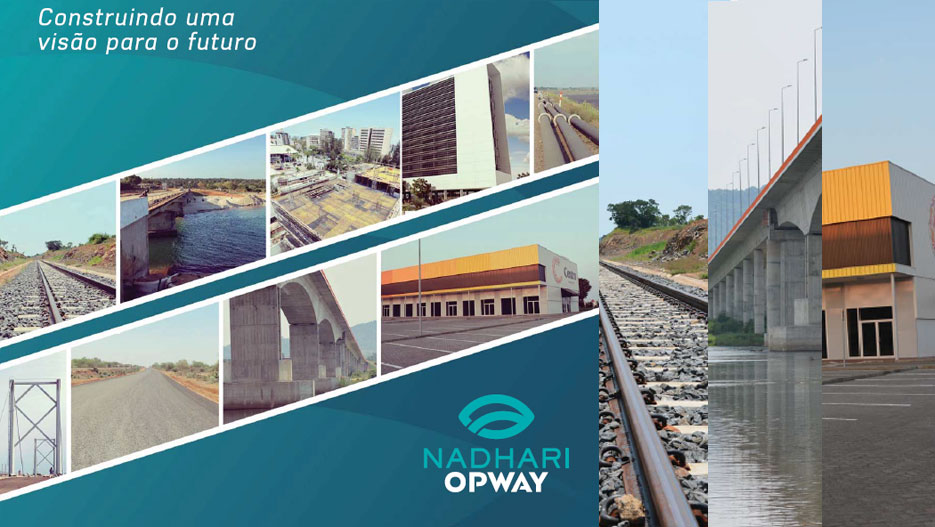
What is your assessment of the construction sector in Mozambique?
Our perspective of the construction sector and the Mozambican economy is positive, even with the crisis. Moreover we believe that Mozambique, and our sector in particular, will take an unexpected turn. The crisis is not only here, it is happening all over the world. When the crisis comes to an end, we will finally be able to grow.
What are the projects that can suffer setbacks due to the crisis and those which are unshakable?
When talking about the construction sector, we have to discuss two fronts. On the one hand we have big structuring projects (which mainly concern gas) taking place and developing the country. On the other hand there is a front that works in parallel with these big projects, which is basic infrastructure for the country (like building houses for deprived families, the implementation of sanitation and road connectivity), and which is one of our focus.
We are specialized in bridges, buildings, dams, etc. We do it all when it comes to construction. That’s why we are able to develop these projects in Mozambique with ease.
Even if the crisis affects many things, basic infrastructure such as road connectivity is an unshakable field. So the crisis is not affecting Nadhari Opway that much. We believe that connectivity projects such as roads and bridges will slowly launch Mozambique. However, we need investors and some of them are afraid to invest due to this crisis. But I believe that even if there are not as many investors as we would like to, people still believe in Mozambique.
One of your areas of focus is sanitation. What are the main projects?
Concerning sanitation, there are many things that need to be done, mainly water supply and sewage disposal for the communities. Obviously this will also impact the construction of water treatment stations, as well as dams. The government has a few projects in the pipeline with reference to sanitation.
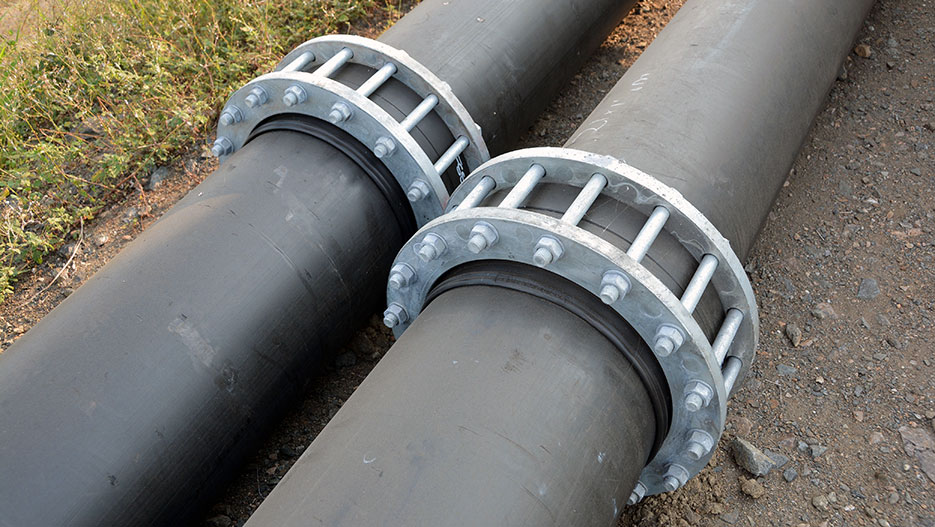
What is your expertise in this filed?
Our company is one of the best in terms of engineering. Our know-how comes from Opway in Portugal, a company that has been in the market for more than 100 years. We are specialized in bridges, buildings, dams, etc. We do it all when it comes to construction. That’s why we are able to develop these projects in Mozambique with ease.
Let’s now talk about connectivity projects. Why is it an interesting sector?
First of all because we have all the necessary know-how in this sector, and then because it’s a sector which is developing everyday more and more in Mozambique, and we need it if we want to get somewhere. I can disclose that we are currently working on the rehabilitation of Inharrime bridge.
What are your competitive advantages in this field?
I believe it is a combination of three factors: our experience, the know-how brought from Portugal and also because our proposal was competitive, both in technical matters as in what concerns price. In the case of Inharrime, we had a more competitive proposal. We had already rehabilitated Xai-Xai bridge in 1993. The Inharrime work is part of a State bid of three bridges for rehabilitation. We have the capacity to do so. For instance, we were in the consortium for Tete bridge, which was inaugurated last year. We really want to participate in several of these initiatives. The State certainly has a lot of those, new tenders are launched almost every week, especially in terms of road rehabilitation. Bridges are not that common actually.
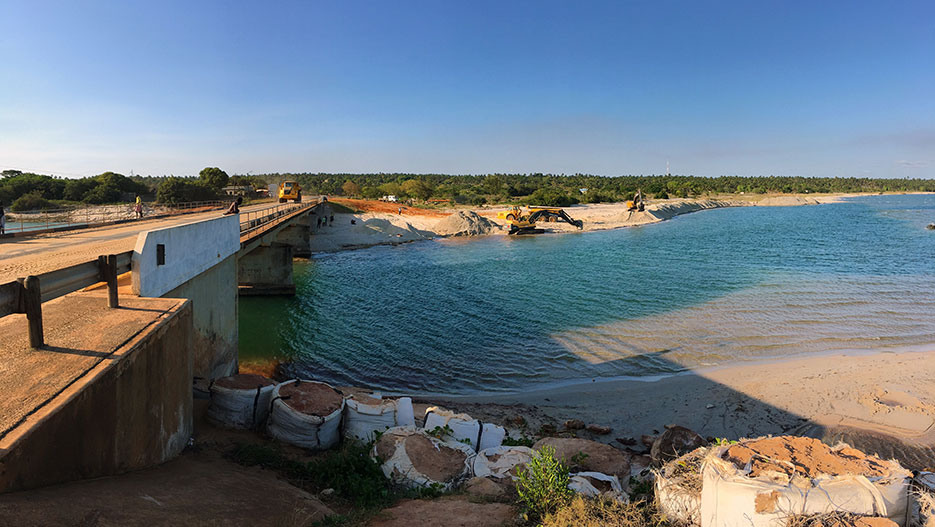
And what about housing? Are there any projects coming up?
Mozambique has many projects to be developed in the housing field. For instance, there is a housing project happening right now in Catembe, on the other side of Maputo bay. But of course there are other projects of this type. There are many people in this country and we need to build infrastructure for them. We managed to attract investors and if people enjoy what is being built, then there are many things to develop in this sector. Not only in Maputo though.
I love housing projects and I have already studied some of them in other African countries such as Algeria, Cameroon and Gabon. I know much about it, so I would like to put it into practice here, by building an integrated project of 500 to 1.000 houses. I was born in Mozambique and I was raised in Portugal. I came back to Mozambique 2 years ago and now I would like to do something for my country. I feel a close connection to Mozambique. Therefore, if I can help improve the infrastructure deficiency that exists here, I would like to do so by working on a structuring projects.
You are currently working on a commercial building here in Maputo. Can you tell us more about it?
We are working on a building in Maputo city, with 20.000 m2 and 15 floors. It’s a commercial building which we began last year and we hope to finish next year. This building will be the headquarters of INSS (Instituto Nacional de Segurança Social / Mozambique’s Social Security). We had a vacant land in the Baixa neighbourhood, so we decided to make this project come to life. Now we hope to acquire a few more lands to do some similar projects.
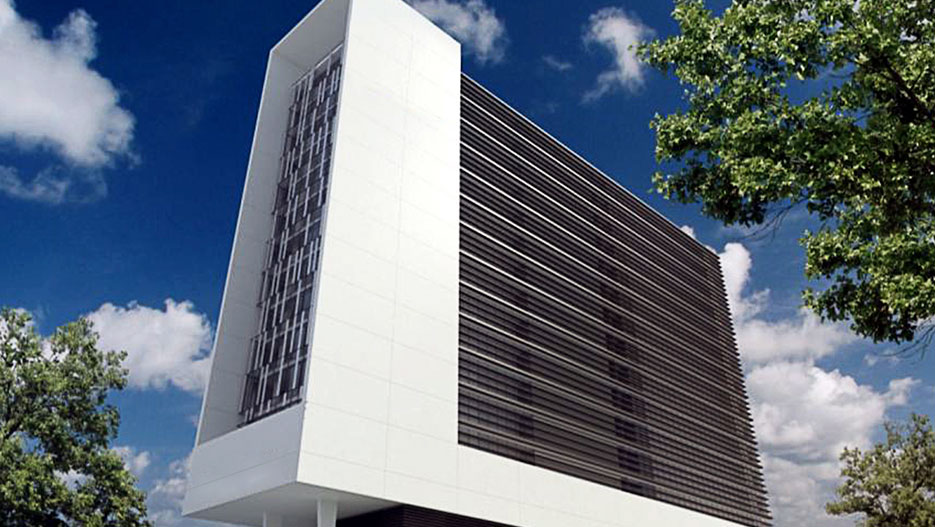
Do you want to invest in other lands?
We are interested in buying more lands for housing. We have financial partners who are analyzing business opportunities with us in this type of project. We have other lands in Mozambique, but they are not for construction. For instance, the company has a good sized plot in Nacala, which is a former site of the company. One of the challenges for this year is to reactivate it. We also have another site in Maputo.
Do you think it is challenging to find investors and commercial partners?
It is not an easy thing. There is the need for a good project which can attract investors. Some of our Mozambican partners are interested in these new projects I was mentioning, so we hope to gain their trust. Housing projects are necessary to develop the country. We expect to start small, with 100 to 150 houses, to show our investors what we are capable of, and then we will expand the size of the project. When projects are megalomaniacs, it is much harder to achieve them.
Where do you see the company in 2 to 3 years?
Our aim is to achieve a turnover of US $ 50 million over the next three years. Thus, we will reach the level of other companies that are here. We do not want an exponential growth, we want to be sustainable. That’s what we are focused on. We are a company with 170 workers, and the goal is to reach 200 by the end of this year, with the projects we have and those that will arise. We want to grow gradually.
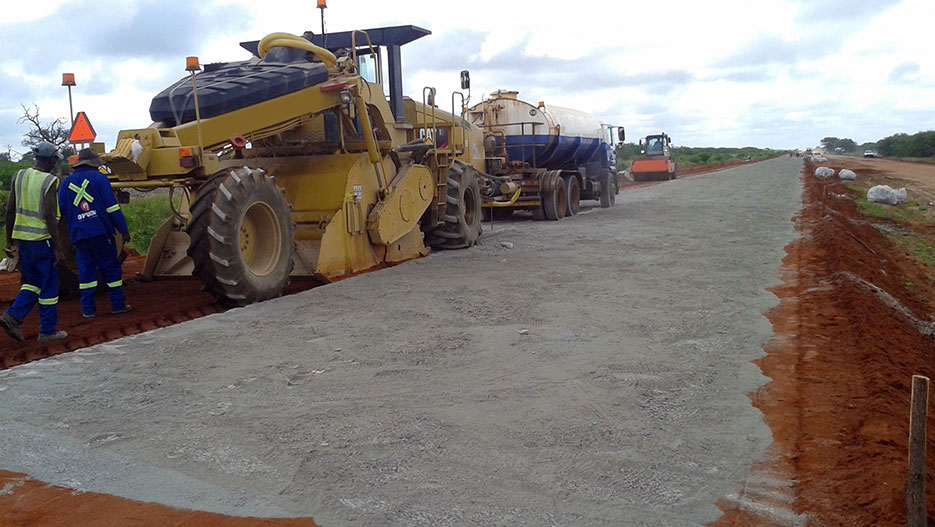
What is your strategy in terms of human resources?
In terms of human resources, we want to reverse the situation of the past. We are a Mozambican company and we want Mozambican employees. Our goal is to give more continuity and longevity to our technicians. We do not want our professionals to leave within six months. We are creating a culture, and this can only be achieved through the continuation of our workers. Of the approximately 170 employees we have today, about 160 are Mozambicans, and we want more. There are people with a lot of potential in Mozambique. We seek more engineers and technicians specialized in various areas, such as accounting, treasury, management and construction control.